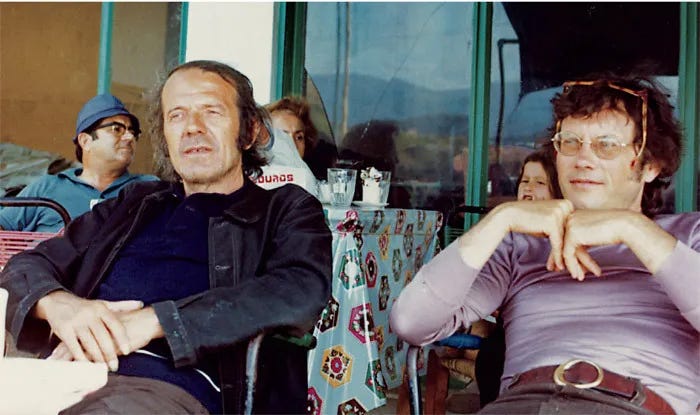Happy New Year! I wrote so much about writer’s block in 2023 that I hesitate to begin 2024 with yet another tale of a stuck writer—but I like where this one leads, so please bear with me. Oh, and if you’re not yet a subscriber, you can become one here:
Gilles Deleuze (1925–1995) and Félix Guattari (1930–1992)

It sounds like the beginning of a joke: A philosopher and a psychoanalyst meet at the philosopher’s house in the French countryside. The psychoanalyst confesses to a terrible case of writer’s block. The philosopher says he knows just the solution…
Only—it’s not a joke, and after their initial meeting, in June 1969, the philosopher and the psychoanalyst began an unlikely intellectual collaboration that continued for more than twenty years and yielded several startlingly original, hugely influential, and controversial books, starting with the jointly authored Anti-Oedipus, published three years after that first meeting.
So what was the philosopher’s solution to the psychoanalyst’s block? First, some background: The psychoanalyst was Félix Guattari, who was then helping to run the experimental psychiatric clinic La Borde in the Loire Valley. He was also an activist, a bit of a troublemaker, and a man of great energy—perhaps too much energy. “He needed something like Ritalin, which we give to hyperactive children today,” a colleague recalled. “We had to find a way to calm him down. Although he claimed that he wanted to write, he never wrote.”
Gilles Deleuze, meanwhile, was one of France’s leading philosophers, who was then fascinated by mental illness and especially psychosis—but he had no first-hand experience with psychiatric patients, like Guattari did. So he created a system for working together, described by François Dosse in his 2007 book Gilles Deleuze and Félix Guattari: Intersecting Lives:



